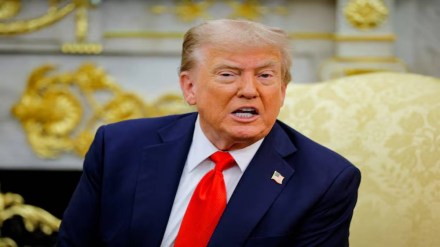US President Donald Trump, who has credited himself time and again with ending “seven wars”, has responded to whether he will win the Nobel Peace Prize this year or not. While speaking to reporters at the White House, the President said he had “no idea” about the decision but added that the committee would likely “find a reason” not to award him the Nobel.
‘They’ll find a reason not to give it to me’
“I have no idea. I mean, look, I did settle. Marco would tell you we settled seven wars,” Trump said, before adding, “We’re close to settling an eighth. I think we’ll end up settling the Russia situation, which is horrible. Seven thousand people died last week, by the way, in Russia, between Russia and Ukraine.”
He went on to say, “I think we’ll settle that. I don’t think anybody in history has settled that many. But perhaps, they’ll find a reason not to give it to me. You know, perhaps.”
#WATCH | On his chances of winning the Nobel Peace Prize, US President Donald Trump says, "I have no idea… Marco would tell you we settled seven wars. We're close to settling an eighth. I think we'll end up settling the Russia situation… I don't think anybody in history has… pic.twitter.com/xLUw1zwvee
— ANI (@ANI) October 8, 2025
Trump’s seven wars claim
Trump has not missed even one opportunity to pat himself on the back for ending “seven wars” and is on his way to the eighth one. The wars or conflicts include the India-Pakistan standoff, which New Delhi has categorically denied. India said that no foreign mediation was involved in ending the conflict.
During his first term as the US President, Trump was nominated for the Peace Prize, but did not win.
Nobel Prize 2025
The Nobel Peace Prize is set to be announced this Friday, recognising an exceptional contribution to global peace. The announcement will cap a week of prestigious honours across various fields of science and the arts.
Earlier this week, the Nobel Prize in Medicine was awarded to Mary Brunkow, Fred Ramsdell, and Dr Shimon Sakaguchi for their pioneering discoveries on peripheral immune tolerance – a breakthrough that deepens understanding of how the body prevents harmful immune reactions.
The Physics Prize went to John Clarke, Michel H Devoret, and John M Martinis for their research into the strange realm of quantum tunnelling, work that pushes the boundaries of digital communication and computing power.
Three scientists were awarded the prize in Chemistry for developing novel molecular frameworks capable of capturing vast amounts of gas. Their innovation opens doors to removing greenhouse gases from the atmosphere and even collecting water from arid air.
The Nobel Prize in Literature is expected to be announced today.
